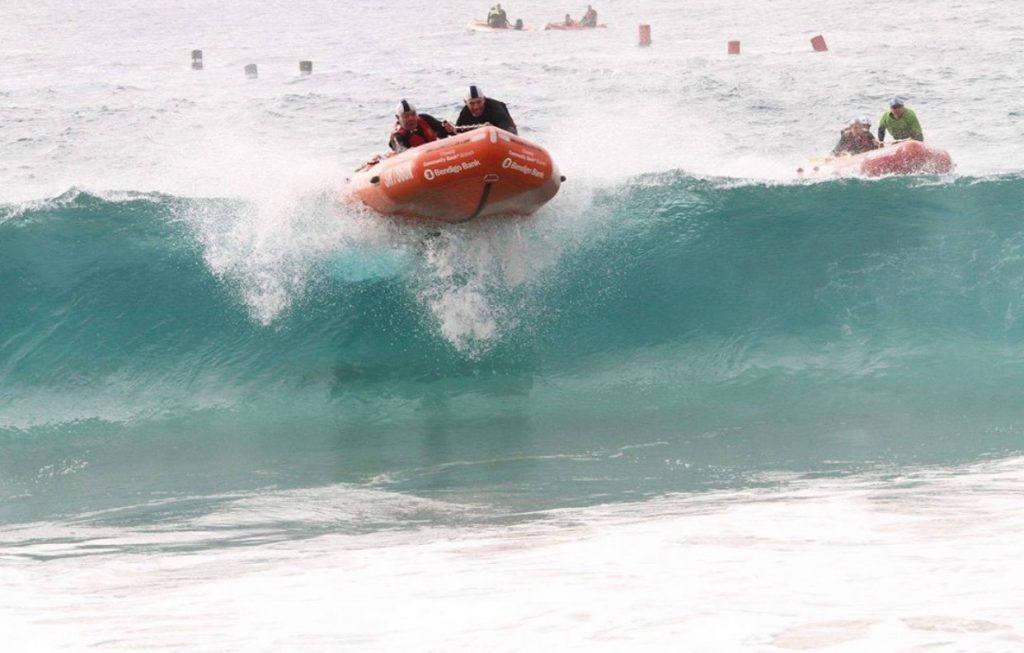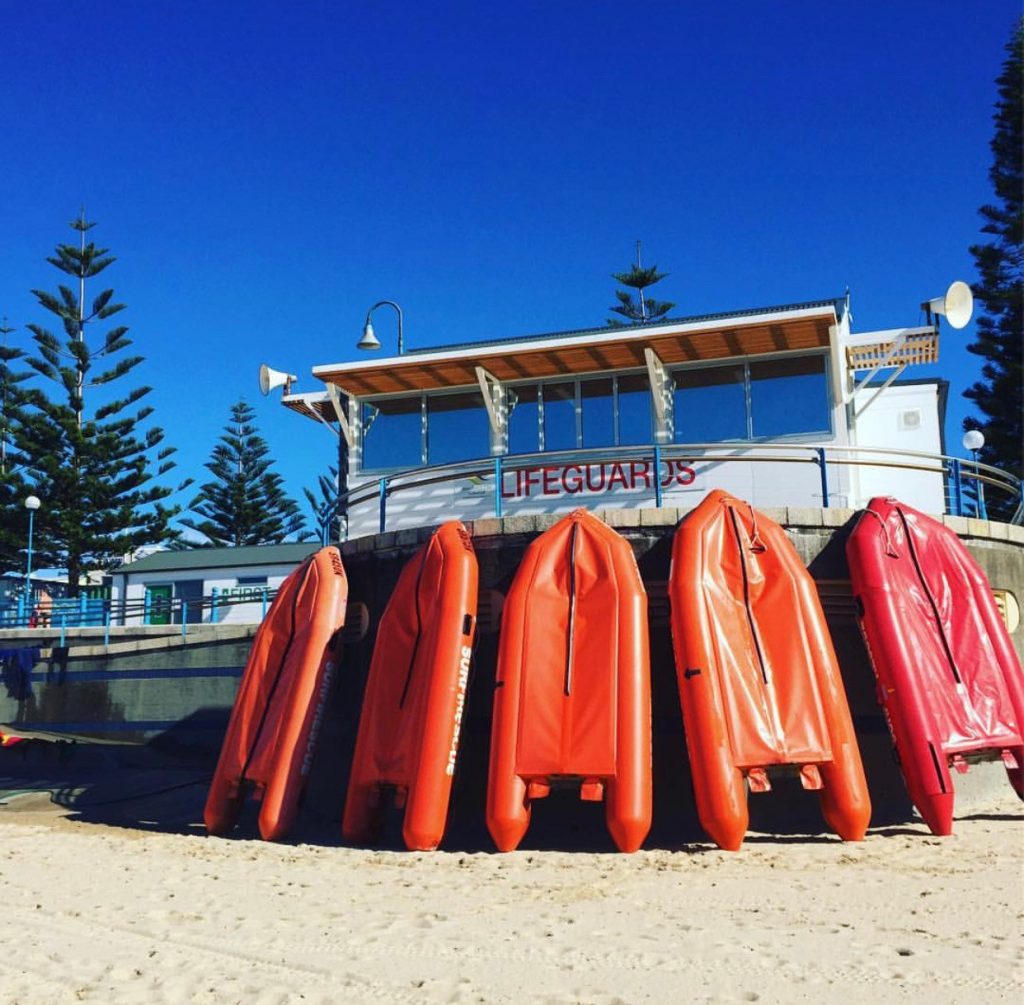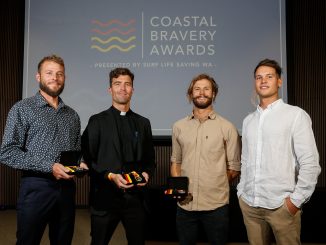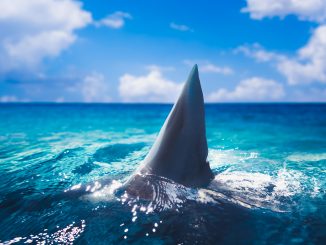
Surf Lifesavers celebrated the 50-year anniversary of the Inflatable Rescue Boat at Avalon Beach in Sydney on the 2nd of November 2019.
Coined the “rubber duck”, the Inflatable Rescue Boat (IRB) is an Aussie innovation responsible for saving well over 100,000 lives along our shores since it first took to the water in 1969. Now in service in more than 50 countries across the globe, the IRB has earned its label of superior surf rescue craft.
Currently, Australia has over 1,000 IRBs in operation throughout its 314 surf clubs. With nearly 7,300 active and proficient drivers and more than 14,000 trained crew, the rubber duckie remains a key instrument in surf lifesaving culture.
Fifty years ago, the first IRB prototype was trialed at Avalon Beach on Sydney’s northern beaches, marking the location as the birthplace of this ocean workhorse. The simple, hardy craft immediately revolutionised surf rescue forever and continues to save thousands of lives each year. These important vessels are also responsible for significantly improving safety for our frontline lifesaving volunteers.

Warren Mitchell was the young lifesaver from Avalon Beach SLSC who identified the necessity for an inflatable boat that could be used to negotiate the break in the surf. At the age of 17, Mr. Mitchell was a part of the first group of lifeguards to travel overseas to work on beaches in the UK. After witnessing a terrible drowning while on duty at Cornwall, Warren began thinking about how an inflatable boat could reach those in trouble more quickly.
Convinced the line and reel method of the time was responsible for the deaths of more people than it saved, Warren saw the need for change and immediately began trialing early versions of the IRB on his return to Australia. On 2 November 1969, a skeptical crowd of onlookers witnessed the initial test, with Mr. Mitchell using his brother, Don, as a crash test dummy crewman.
Though traditionalists within the lifesaving movement were resistant to change and the use of his new inflatable creation, this didn’t hinder Warren’s motivation. “Every time people said to me it wouldn’t work, that was the worst thing they could have ever said to me,” he said.

Vindication came in December 1969, when Warren was on patrol at Avalon Beach and eight people were dragged out to sea in a rip. He used the inflatable boat he was testing to rescue all eight people, making history as the first rescue conducted using an IRB.
Various versions of the boat were tested, including Warren’s Dunlop inflatable boat and Ken Brown’s French-made Zodiac. Other surf clubs were also experimenting with inflatable crafts at the same time and the first IRB was officially approved for use by Australian surf clubs in 1970.
At the recent 50-year celebration, Northern Beaches Council Mayor, Michael Regan, unveiled a plaque at the Avalon Beach SLSC, commemorating the determination of Warren Mitchell in introducing the lifesaving craft into service all those years ago. Warren’s brother, Don, was part of the proud congregation and said, “Warren was very influential in getting IRBs into Surf Life Saving. He was renowned for what he did, and I can only thank him as a brother.”

The president of Surf Life Saving NSW, George Shales, was also in attendance and took the opportunity to pay tribute to the IRB and the crews who have saved so many lives over the last 50 years. “There would be many families who would give their life savings for the chance to meet and recognise the individuals who have used the IRB to save lives of loved ones over the years,” he said.
For Warren Mitchell, the commemoration of the work he put in half a century ago, put into perspective the magnitude of his efforts. “Every time somebody puts their hand out in an IRB to rescue someone, it feels like my hand and the hands of all the other crews. It’s our hands saving lives,” he said.






Be the first to comment